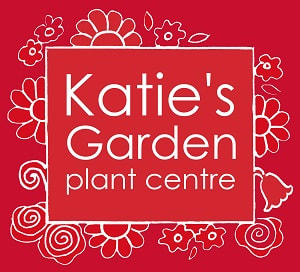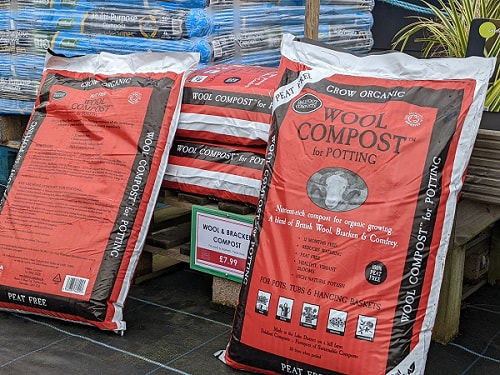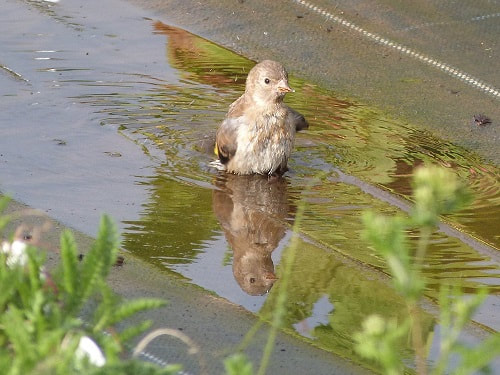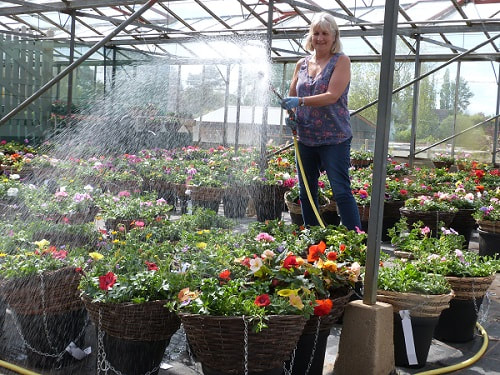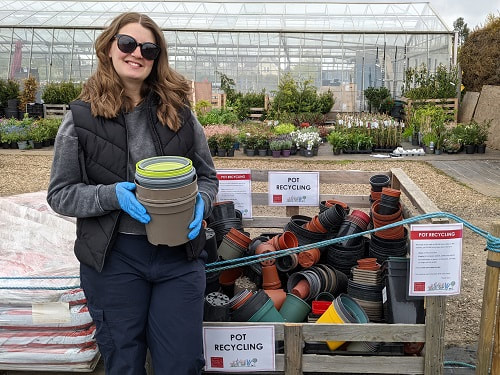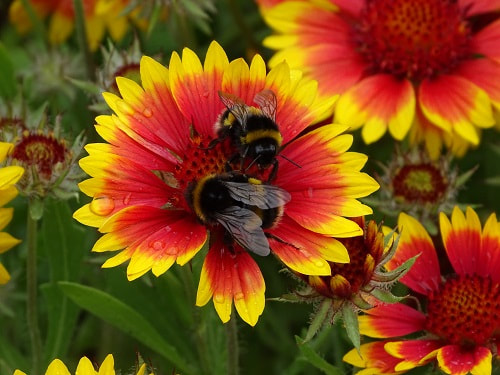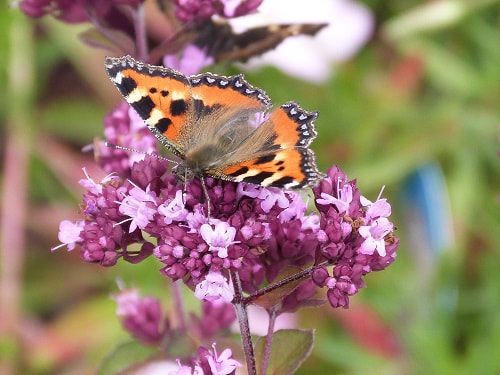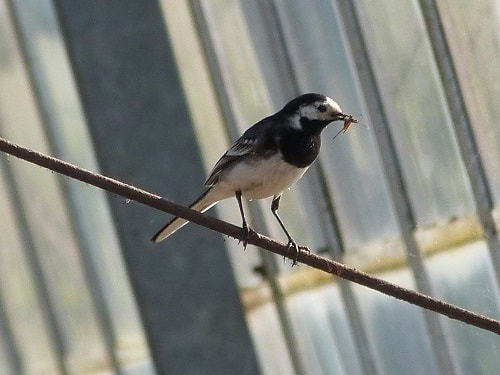Protecting the planet
Finding ways to protect the planet, its resources and its wildlife has been ever-more important to gardeners and at Katie’s Garden we have been adapting how we work with this in mind.
We have always been able to offer the benefit of locally-grown plants with minimal miles on the clock. We also grow our plants without artificial heat and light, unlike many larger producers.
We have always been able to offer the benefit of locally-grown plants with minimal miles on the clock. We also grow our plants without artificial heat and light, unlike many larger producers.
|
The horticulture industry has long relied on peat-based composts to grow containerised plants quickly and cheaply. Peat is a superb material for plant production, with moisture and fertiliser levels being relatively easy to manage.
However, growing awareness of the importance of peatland habitats for both conservation and climate management means that the industry is working towards a completely peat-free future. We are trying to avoid using alternatives which are produced thousands of miles away, or which use other scarce resources, as this simply shifts the problem around. Following successful trials in 2022, nearly everything in our 1 litre range of perennials, together with our vegetables and herbs, will now be grown in peat-free compost. We have chosen a professional compost from British company Melcourt, whose products use sustainable waste products, mainly from the UK. The remainder of our stock will continue to be grown in 20-40% peat-reduced composts while we get used to the new watering and nutrition regimes necessary for the peat-free range. Over the next few years we aim to gradually move to completely peat-free production. |
In the last couple of years, despite a big increase in our overall production, we have managed to reduce our water consumption through increased use of hand watering rather than sprinklers, with satisfying spin-off benefits in plant quality. |
|
Our use of pesticides is very limited, and we do not have a regular preventative spray programme, preferring to rely on vigilance and a quick response to any problems. We’ve had good results from nematode applications against vine weevil, and this year are using beneficial insects in our bedding glasshouse as the start of an integrated pest-management programme. |
|
Before the pandemic, the industry as a whole was moving to using non-black plant pots as coloured pots fit in better with kerbside recycling schemes.
However, it is a myth that black pots cannot be recycled – they just need different machinery, and pre-sorting, as for technical reasons they are difficult to extract from a general waste stream. Supply problems worldwide, exacerbated by the pandemic, mean that we’re now never sure what colour pots we will get! So we are focusing on re-using as many as we can, and ensuring that as many as possible are recycled. We now have collection stations where customers can return pots and trays (sorted by size, please, and free of excess soil, compost or debris!) |
Our online and in-store advice often includes highlighting plants beneficial to wildlife, from our Bird and Butterfly Friendly plant lists - click here - displays of pollinator friendly plants, to extolling the benefits of hedging, as well as tips on reducing watering usage. |
HoursEvery day: 10am - 4pm
|
Telephone |
|
Newsletters |
Rewards club |

